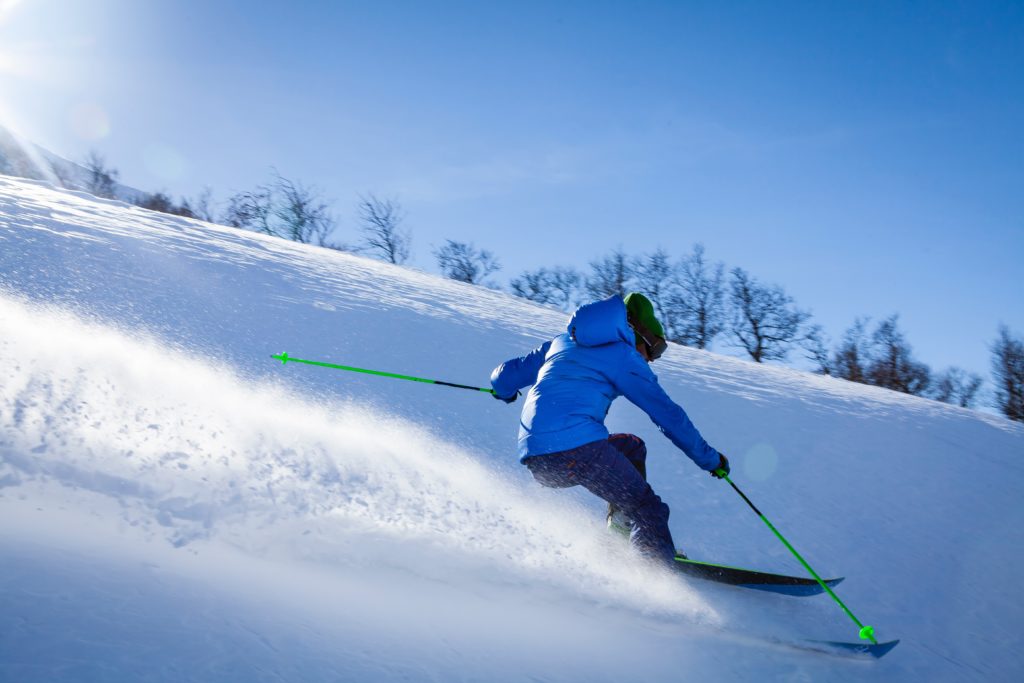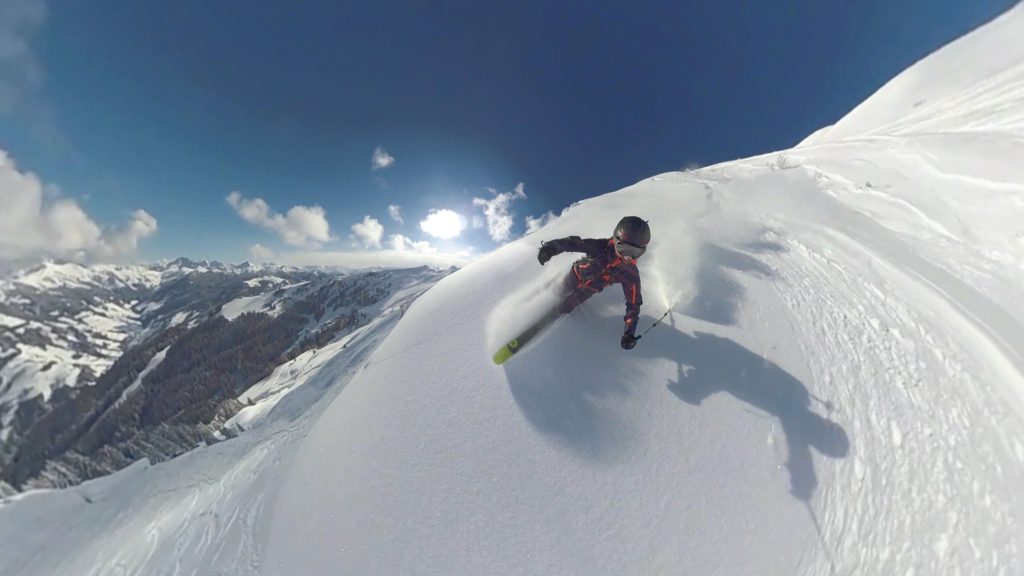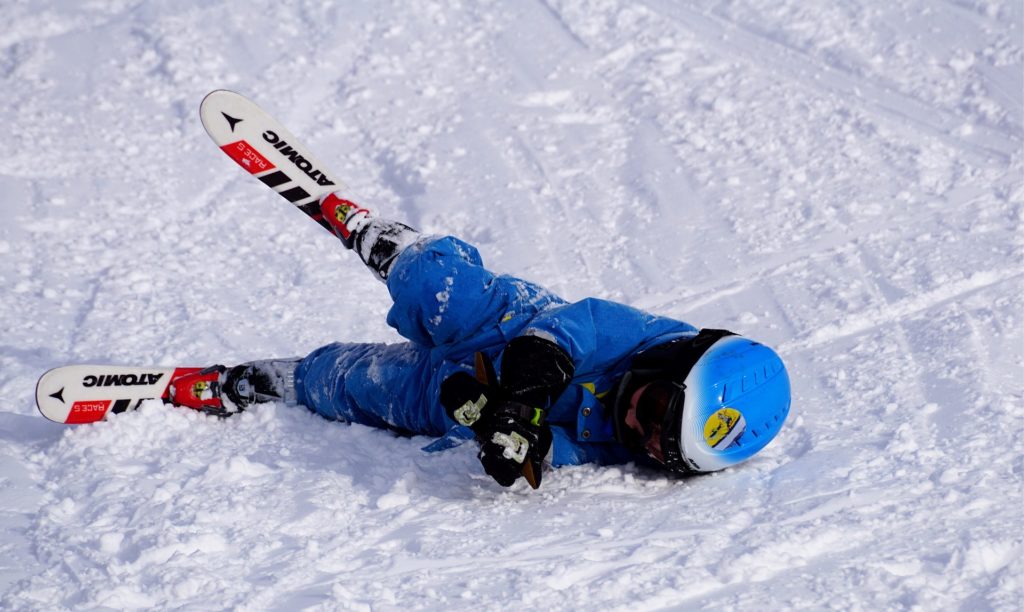Living in Switzerland, skiing is a normal part of winter life. Having moved from Los Angeles, it was unfortunately not a part of my life until I got here, and I was therefore woefully behind all of my friends and colleagues when I finally hit the slopes.
My first day out, I hired a ski instructor. I had never skied before in my life, so I felt it was a reasonable acquisition. One afternoon of ski instruction was a reasonable price to pay for speeding up the initial learning curve and getting me out onto the slopes with friends faster.
GOOD THING I GOT A SKI INSTRUCTOR.
I had seen people ski before – I had watched the Olympics and had sat in a ski lodge drinking hot wine while skiers glided gracefully past. Turns out you can’t learn how to ski by watching other skiers. It is no where near as easy as it looks, and there is a lot behind the scenes that goes into making it look effortless.

In my head, I was going to get out on skies and zoom down mountains in a flurry of snow after an hour or so of lessons. What I was forgetting was that getting down a mountain quickly might be easy enough, but I wanted to do it, you know, upright and balanced and actually ON my skis, be able to turn and avoid obstacles (or the dubiously marked black-level slopes), not to mention I needed to master some of the tangential processes that never even occurred to me, like how to get on and off the lifts without rolling halfway down the slope and losing a ski and giving myself a black eye. (true story. whoops.)
I wanted to ski before I could stop. I wanted to run before I could walk. I didn’t even realize all of the little details that were required learning to make it a successful experience.
Luckily I had a ski instructor that was able to walk me through much of the beginning stuff, and I ended up having several more skiing lessons after that to avoid feeling like a total klutz on the slopes.
Yes, its true that many people manage to teach themselves great skills, like how to ski. But that isn’t most people, and most people do benefit from lessons and instruction.
Importantly, lessons can help you skip some of that initial learning trial and error, and more experienced people who have been there before you often have tips and techniques they can give you to help you along your way with much less pain and agony than if you were to go at it alone.
Lessons from experts can make the difference between a passable skier and one who looks polished and elegant and makes everything look effortless.

So why is it different for writing scientific manuscripts?
Unlike in skiing, students and post-docs are expected to be able to read a few manuscripts and know exactly how to compose a great one that will have a high impact and read smoothly.
They are expected to look at a completed manuscript and know how to get there, but its obvious that watching skiers while drinking hot wine in the lodge wasn’t going to make me a skier. Not even close.
My experience in learning to write a manuscript mirrors that of a shockingly high percentage of my clients, and it sucked.
My initial instructions consisted of being told to write a manuscript. Period.
So, I read a ton of manuscripts from our target journal, then labored for many stressful months waffling on what to put where, how to start the intro, what to put in the conclusion, etc, all while my boss continuously asked for updates on my progress, which stressed me out further. After I wrote my first draft, he proceeded to completely re-write it and gave me back an essentially new manuscript.
I felt like a total failure and didn’t learn much at all about how to do better in the future, all after spending months in agony to do even this much.
It sucked.
It gave me a fear of writing manuscripts
I expect it is the equivalent to being taken to the top of a mountain for your first time on skis and pushed down the slope.
That also would have been a total disaster, and I would have dreaded skiing in the future.

Yet, scientists are expected to write manuscripts like a skier learning to ski by being thrown on a slope and to make it look effortless and easy-to-comprehend in the process. No wonder so many struggle with their first several papers, that so many scientists dread and detest the writing process, and that so many papers read like riddles that can only be solved by the initiated.
- Why is it so taboo for scientists to seek help when it is standard in any other activity for beginners to take lessons?
- How can scientists expect to know how to make their writing appear coherent and effortless when they learn on the fly with no instruction?
- Why should scientists waste valuable research time learning the hard way from beginner mistakes instead of doing what skiers do – hire an instructor?
- Or, why should professors, whose time is increasingly more precious, bear the burden of teaching new generations of scientists how to write when their focus and skill sets lie in other areas?
What can we do about this dichotomy?
Essentially, the taboo around scientists asking for and receiving help needs to go.
Why shouldn’t a scientist have someone teach them how to write and edit manuscripts? Isn’t that the most efficient way to learn how to most effectively compose a paper?
Scientists are expected to be a master of all trades, but the skill set required to be a good research scientist isn’t always the same as the one necessary for writing convincing scientific documents.
If just a few “lessons”, say in workshops or a one semester course in graduate school, could dramatically improve the ability to write effective papers, shouldn’t it be standard practice for all research scientists to take classes on scientific writing and composing manuscripts?
While there are, fortunately, some institutions that are starting to implement these kinds of classes, they aren’t standard practice and are often not required. This leaves the burden of teaching new generations squarely on the shoulders of over-worked professors who know that there are already not enough hours in the day.
Scientists should stop thinking they need to be able to do it all – its just not possible. So if you can’t do it all, what is most worth your doing?
Students and post-docs laboring over papers – is this what you want to be doing? Is your time best spent fighting with yourself to get words on paper that might be deleted and rewritten by your professor in a few months when you finally get your manuscript to them, or would you prefer to quickly crank out an effective first draft and be back in the lab getting new research results?
Professors – is your time best spent correcting your lab’s very rough drafts and teaching your lab members how to write better papers, or would you rather have a higher quality draft from the beginning from students and post-docs who took courses in writing, which would save your valuable time for teaching, grant writing, and all of your other professorial duties?
Why isn’t manuscript writing taught like skiing? Wouldn’t scientists be better off for it?
